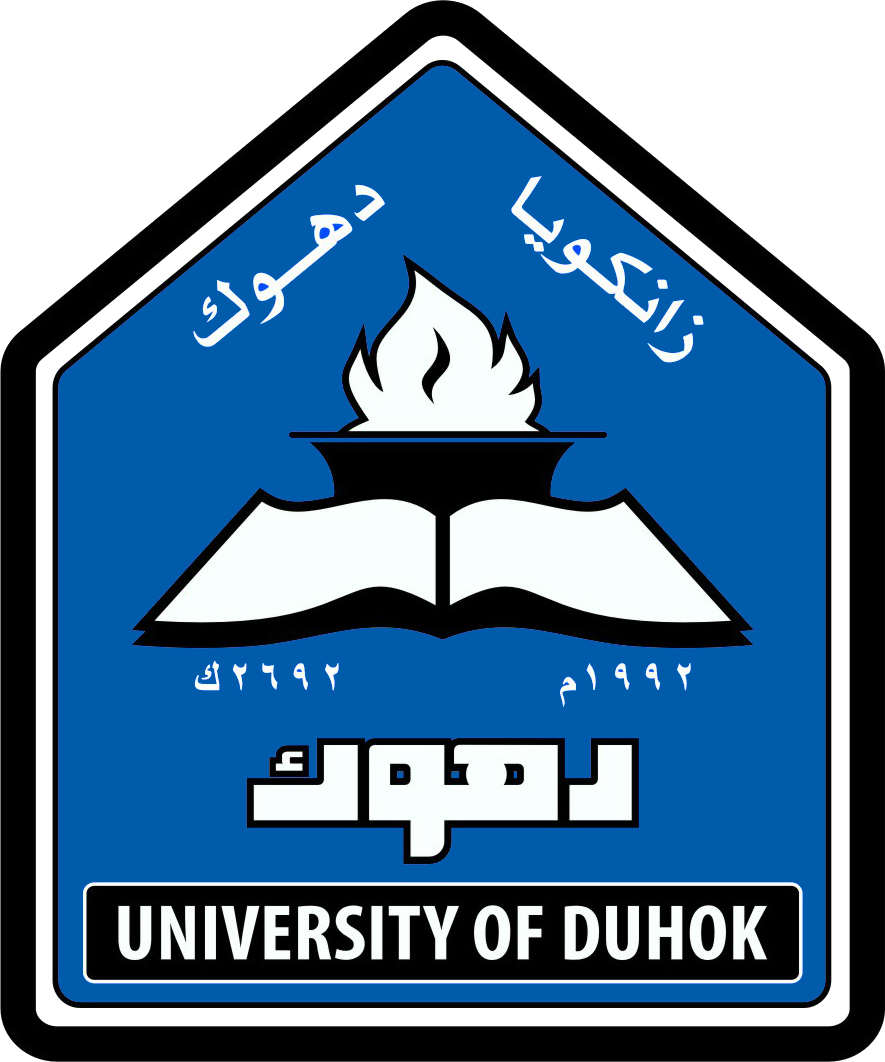Policy Development
Policy development at the University of Duhok follows a systematic process that encompasses the following steps:
- Identification of the Need: The first stage involves identifying the need for a new policy or the revision of an existing policy. This may be driven by changes in laws, regulations, or emerging issues that impact the university’s operations, goals, or stakeholders.
- Research and Analysis: Thorough research and analysis are conducted to gather relevant information and insights regarding the policy topic. This includes reviewing existing policies, exploring best practices, and considering the specific context and requirements of the University of Duhok.
- Drafting the Policy: Based on the research findings, a draft policy is prepared. This draft outlines the purpose, objectives, scope, and specific actions or guidelines to be included in the policy. It ensures alignment with the university’s mission, values, and strategic priorities.
- Stakeholder Engagement: The draft policy is shared with key stakeholders, such as faculty, staff, students, and relevant departments or committees. Their input, feedback, and perspectives are sought to ensure a comprehensive understanding of the potential impacts and to address any concerns or considerations.
- Review and Revision: Feedback from stakeholders is carefully reviewed, and the draft policy is revised accordingly. This stage involves refining the language, clarifying intent, and incorporating valuable suggestions to enhance the clarity, effectiveness, and relevance of the policy.
- Approval Process: The revised policy is presented to the University Steering Committee and then University Council of the University of Duhok for approval. This may involve senior leadership, administrative committees, or the university’s governing board, depending on the nature and scope of the policy.
- Implementation: Once approved, the policy is communicated to the university community, and mechanisms for implementation are established. This may include disseminating the policy, providing necessary training or guidance, and ensuring the integration of the policy into relevant processes and procedures.
- Monitoring and Evaluation: Policies at the University of Duhok are regularly monitored and evaluated to assess their effectiveness, adherence, and impact. This involves ongoing assessment, data collection, and feedback mechanisms to identify areas for improvement and ensure continuous alignment with the university’s objectives.
- Policy Maintenance and Review: Policies are periodically reviewed and updated to reflect changes in external factors, legal requirements, or evolving university needs. This cyclical process ensures that policies remain current, relevant, and supportive of the University of Duhok’s mission and vision.
Throughout the policy development process, the University of Duhok emphasizes transparency, inclusivity, and stakeholder engagement to ensure that policies effectively meet the needs of the university community and contribute to its overall success.
Policy Resources
The University Policy Office (UPLO) at the University of Duhok also provides various resources to support the development, implementation, and maintenance of university policies. Here are some examples of UPLO resources available at the University of Duhok:
- University Policy Manual: A comprehensive document that houses all official university policies, serving as a central reference for the university community.
- Policy Templates: Standardized templates and formats provided by UPLO to guide the creation and formatting of new policies, ensuring consistency and adherence to the university’s policy framework.
- Policy Development Guidelines: Clear guidelines and procedures that assist policy owners and stakeholders in the development and revision of policies, offering step-by-step instructions and best practices.
- Policy Review and Approval Process: A documented process that outlines the steps, timelines, and responsibilities involved in reviewing, revising, and approving policies within the University of Duhok.
- Policy Repository: A centralized and accessible repository or online portal where all university policies are stored, allowing easy access for the university community.
- Policy Communication Plan: A plan devised by UPLO that outlines strategies for effectively communicating policies to the university community, ensuring awareness and understanding.
- Training and Education Materials: Resources such as presentations, videos, workshops or handbooks developed by UPLO to provide training and education on specific policies or policy-related topics.
- Policy FAQs and Guidance Documents: Frequently Asked Questions (FAQs) and guidance documents that provide additional clarity, examples, and answers to common questions regarding university policies.
- UPLO Support: The UPLO team, available to provide guidance, support, and assistance to policy owners, stakeholders, and the university community throughout the policy lifecycle.
These resources are designed to ensure the effective development, implementation, and understanding of university policies at the University of Duhok. For more specific information on UPLO resources and how to access them, it is recommended to contact the University Policy Office directly.
The University Policies by Category
At the University of Duhok, policies are organized and categorized into various categories to facilitate easy access and navigation.
Please note that this is not an exhaustive list, and specific policies may vary based on the University's context and requirements. To access the complete list of policies at the University of Duhok, please visit the University Policy Office (UPLO) website or contact the UPLO for further assistance.
Here is a list of common policy categories at the University of Duhok:
🠶 Academic Policies
- Academic Integrity Policy
- Grading and Assessment Policy
- Academic Program Review Policy
- Student Conduct and Discipline Policy
🠶 Administration Policies
- General Policy of Strategic Planning
- UOD-Communication and Stakeholder Engagement Policy
- Administrative Communication and Information Sharing Policy
- Administrative Records Management Policy
- Administrative Travel and Expense Reimbursement Policy
🠶 Students Service Policies
- Admissions Policy
- Student Enrolment and Registration Policy
- Student Support and Counselling Policy
- Student Housing Policy
🠶 Information Technology Policies
- Use Of The University’s Brand, Name & Motto Policy
- Email Accounts and Electronic Communications Policy
- UOD Email Retention Policy
- Software and Hardware Acquisition Policy
- IT Service Management Policy
🠶 Safety and Security Policies
- UOD-Risk Management Policy
- Fire Safety Policy
- Health and Safety Policy
- Information Security Policy
- Workplace Violence Prevention Policy
- Laboratory Safety Policy
